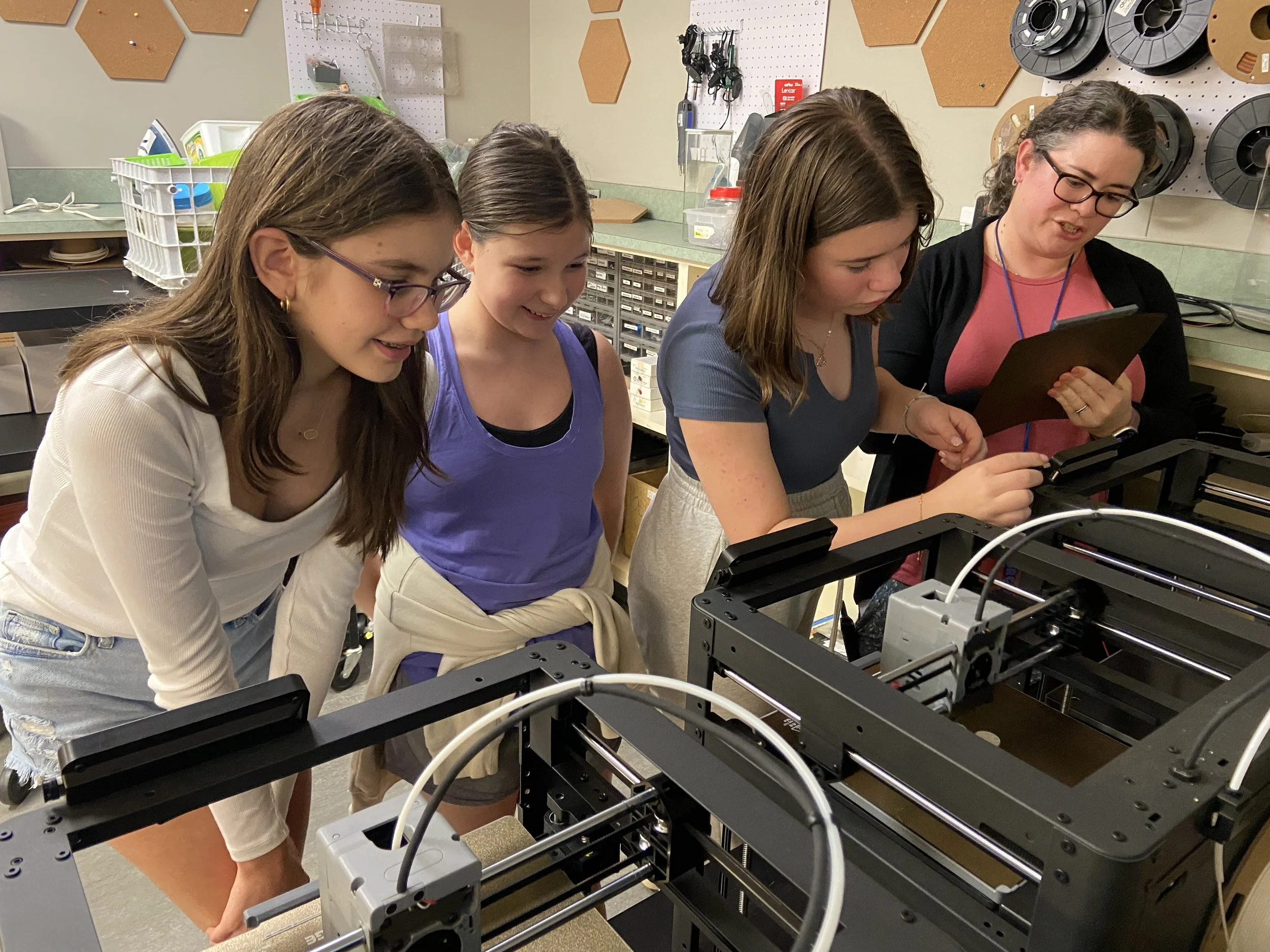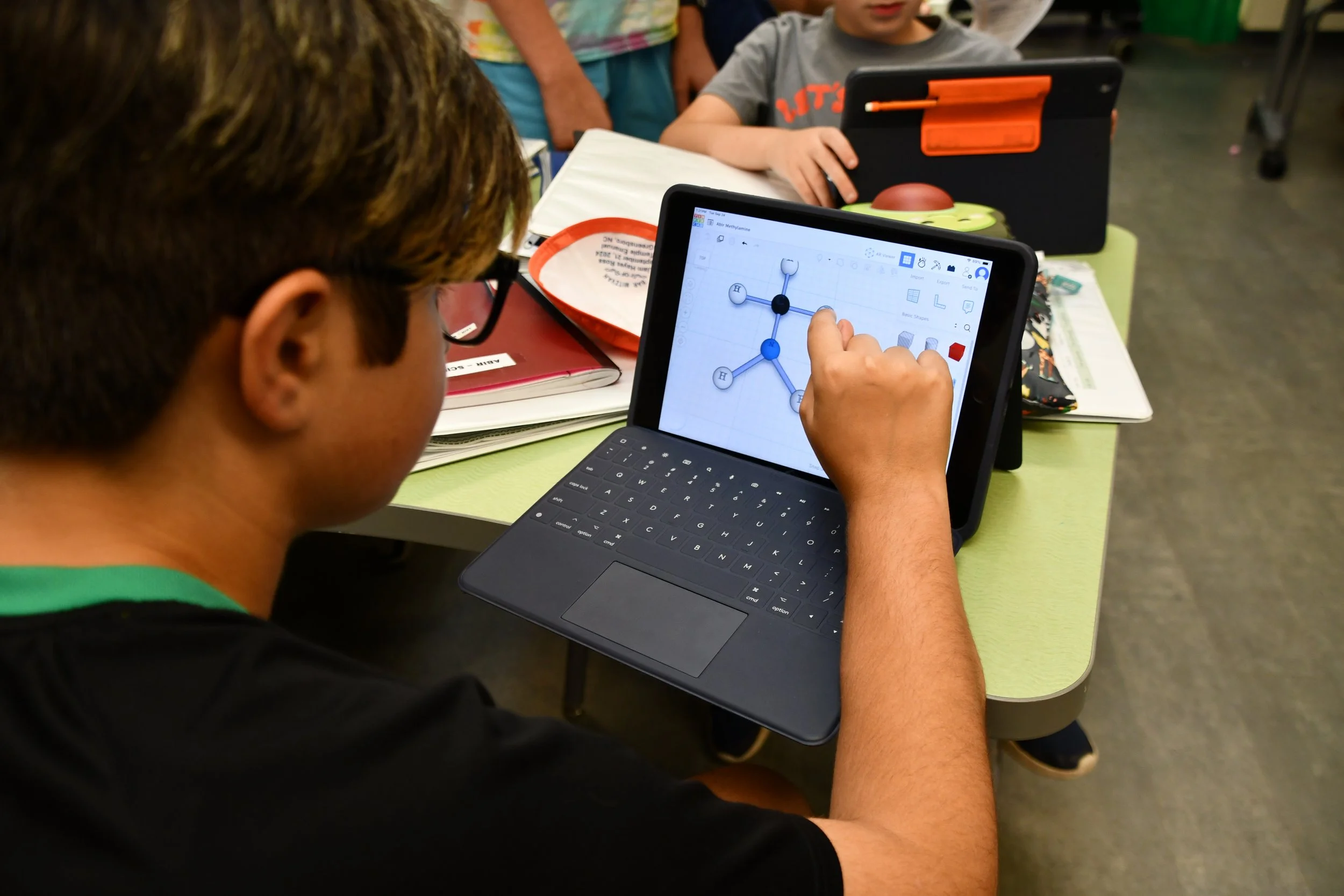Technology & Innovation at B’nai Shalom
At B’nai Shalom, our state-of-the-art maker space—known as the FabLab—is a hub of creativity, innovation, and hands-on learning. Beginning in Kindergarten, students are introduced to design thinking and fabrication tools that grow in complexity as they move through the grades. The FabLab is equipped with 3D printers, a laser cutter, laser engravers, a Cricut machine, a sewing machine, and more. By the time students reach 8th grade, they confidently integrate these tools into everyday classroom projects across subjects. Our teachers receive ongoing training to thoughtfully incorporate these technologies into project-based assignments, allowing students to bring ideas to life in meaningful ways. More than just a space for making, the FabLab fosters collaboration, resilience, and problem-solving—teaching students that failure is part of the process, mistakes are valuable learning opportunities, and innovation thrives through teamwork.
Starting in 2nd grade, students at B’nai Shalom begin learning the fundamentals of coding and robotics through hands-on exploration and age-appropriate programming tools. As they progress, students build and program increasingly complex robots, culminating in exciting, collaborative robotics challenges and competitions. We’re thrilled to be launching a competitive robotics team, offering students the opportunity to apply their skills in real-world problem-solving scenarios. Robotics education teaches students to think critically, break down complex problems, and persist through trial and error—skills that are essential in today’s technology-driven world. By engaging with robotics, students are not only having fun—they’re developing the creativity and confidence needed to be the next generation of innovators.
At B’nai Shalom, every student receives an iPad beginning in Kindergarten, giving them access to powerful tools that support learning, creativity, and organization. iPads are used in the classroom only and remain at school to encourage healthy, balanced use of technology. Students learn to navigate the Google Suite—including Docs, Slides, and Drive—which builds digital literacy and prepares them for future academic and professional environments. We believe it’s essential for students to develop these tech skills in a mindful way, with guidance from their teachers. By integrating iPads into the classroom intentionally, we ensure that technology enhances learning while promoting responsible use, collaboration, and critical thinking.
Our Loose Parts Library at B’nai Shalom is a treasure trove of creativity, filled with upcycled and repurposed materials such as buttons, bottle caps, fabric scraps, cardboard, and more. These “loose parts” invite students to imagine, design, and build in open-ended ways, encouraging innovation, problem-solving, and hands-on exploration. Students regularly use materials from the Loose Parts Library in class assignments and projects, allowing them to express ideas through tactile, creative mediums. This approach not only supports cognitive and artistic growth, but also reflects core Jewish values—bal tashchit (not wasting) and tikkun olam (repairing the world)—by giving new life to items that might otherwise be discarded. It’s a meaningful blend of sustainability, tradition, and joyful learning.




